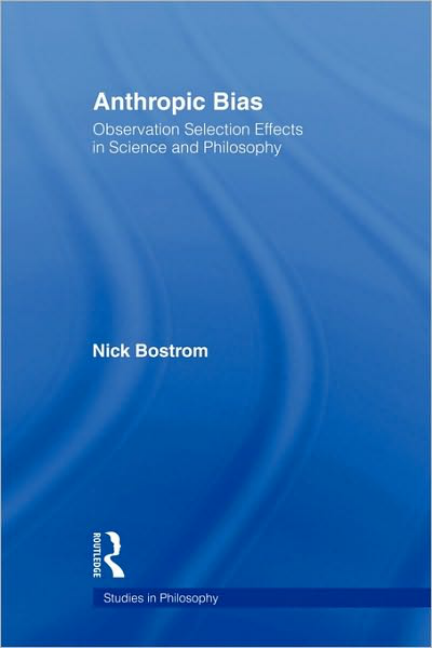Anthropic Bias - Nick Bostrom

## Metadata
- Author: **Nick Bostrom**
- Full Title: Anthropic Bias
- Category: #articles
- URL: https://readwise.io/reader/document_raw_content/228382718
## Highlights
- But that would be to overlook an observation selection effect. For no matter how small the proportion of all Earth-like planets that evolve intelligent life, we will find ourselves on a planet that did (or we will trace our origin to a planet where intelligent life evolved, in case we are born in a space colony). Our data point—that intelligent life arose on our planet—is predicted equally well by the hypothesis that intelligent life is very improbable even on Earth-like planets as by the hypothesis that intelligent life is highly probable on Earth-like planets. This datum therefore does not distinguish between the two hypotheses, provided that on both hypotheses intelligent life would have evolved somewhere. (On the other hand, if the “intelligent-life-is-improbable” hypothesis asserted that intelligent life was so improbable that is was unlikely to have evolved anywhere in the whole cosmos, then the evidence that intelligent life evolved on Earth would count against it. For this hypothesis would not have predicted our observation. In fact, it would have predicted that there would have been no observations at all.) ([View Highlight](https://read.readwise.io/read/01je1by57z0cvfcwcxgjxsz779))